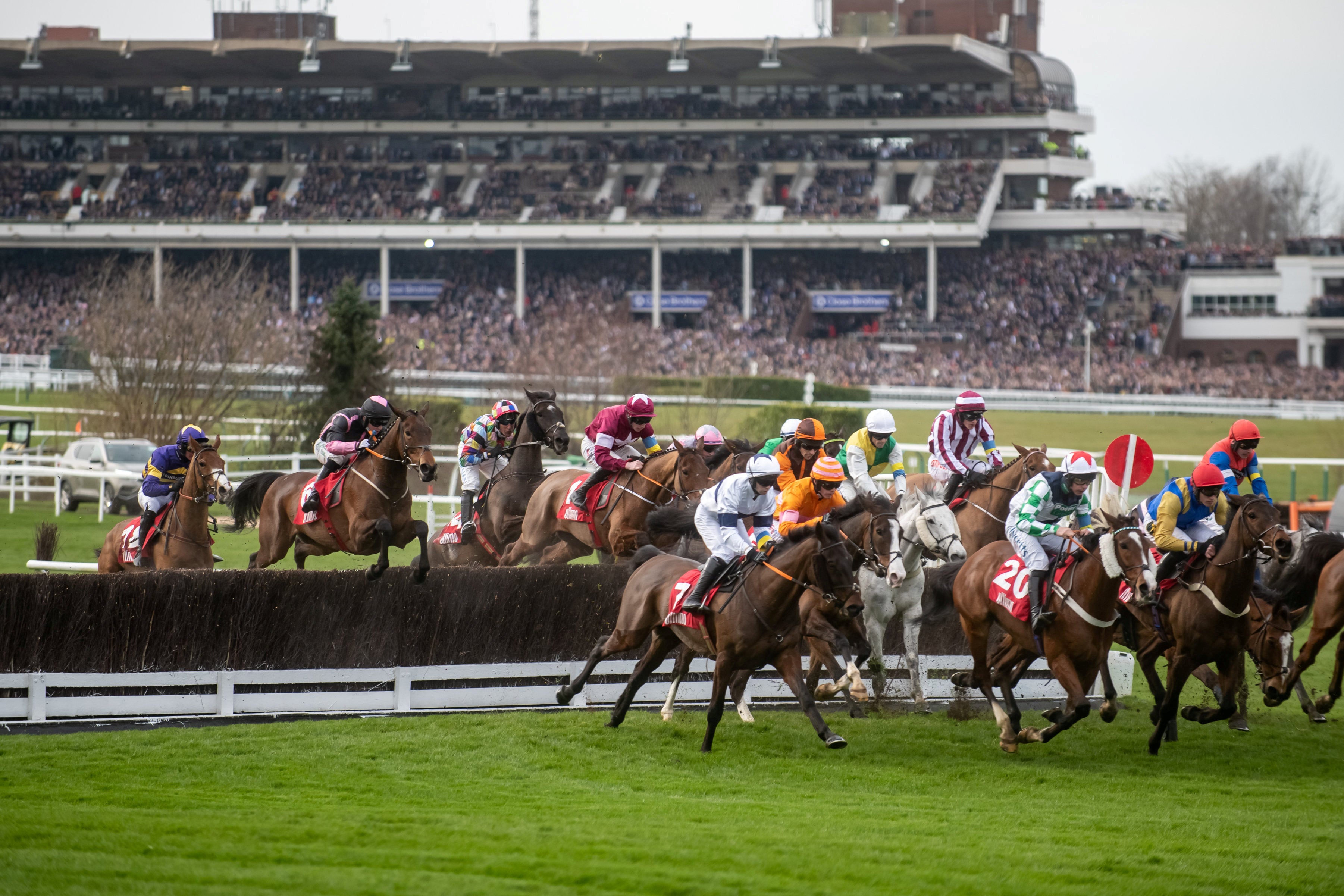I’m not trying to stop you having fun at Cheltenham, but there’s something you should know
The use of animals in travelling circuses is banned in England, but the same exploitation continues every day on racecourses


The annual Cheltenham Festival starts today. It’s true that some people love the camaraderie and atmosphere of horse racing, and enjoy the chance to dress up. They don’t mean any harm to anyone or anything. But all the costumes in the world cannot mask the fact that Cheltenham is, in my opinion, exploiting animals and people alike.
Racing folk love to tell us that they treat horses better than they treat humans. Well, in that case, don’t let them anywhere near your loved ones. Over the last 16 years, 2,578 horses have died on British courses.
These figures are on top of the horses that were sent to slaughterhouses when they became too old to race. A Panorama investigation in 2021 found that 4,000 former racehorses had been sent to slaughterhouses in Britain and Ireland since the beginning of 2019.
Sometimes, retired racehorses are driven to laboratories first so that scientists can perform cruel experiments on them before they’re killed. Remember this, next time a racing fan tells you that they love horses.
Cheltenham is particularly deadly: 73 horses have been killed at the festival since 2000. In 2006 alone, 11 horses died there. A report from Animal Aid exploring why so many horses die at Cheltenham highlighted “crowded races, extreme race distances, novice horses used in demanding events, stiff (no-give) fences and challenging racing ground”.
Let’s drop the fairytales: racehorses are not looked after. They are brutally exploited, while people – dressed up in ostentatious outfits – look on and drunkenly cheer. The use of animals in travelling circuses is banned in England, but the same exploitation continues every day on racecourses.
And exploitation isn’t just limited to animals, but people too. Take gambling: last year, Paddy Power estimated that as much as £1 billion would be gambled on festival races. “There is no other meeting like it,” agreed a delighted spokesman from Coral. Let’s look at that. Addiction experts said at the weekend that they are braced for a surge in people seeking support for problem gambling after Cheltenham. Shouldn’t we be being more responsible?
Then there is Cheltenham Ladies’ day, which you could say is an example of classism. The pressure is on for everyone to dress up in expensive (and noteworthy) outfits. Often, we find ourselves scrolling through galleries to spot the most ridiculous. Is that cruel or classy? Not to mention that it often seems like the costumes only perpetuate the impression that horse racing is an elitist sport.
This is all before we get to the violence. In 2018, one racegoer nearly lost his sight in one eye after being punched in what he believed may have been a homophobic attack. The same year, a senior festival manager was hospitalised.
Finally, and new for 2023, the local council is being forced to use “splash-back paint”, which causes liquid to return in the direction of its source, to try and discourage revellers from urinating publicly all over the town.
Again, I can’t help feeling this is symbolic of the dark side of Cheltenham Festival, away from all the glitz and glam and air of celebration – one in which the horses, and many of those who walk away with empty pockets, suffer. No amount of splash-back paint can help with that.

Join our commenting forum
Join thought-provoking conversations, follow other Independent readers and see their replies